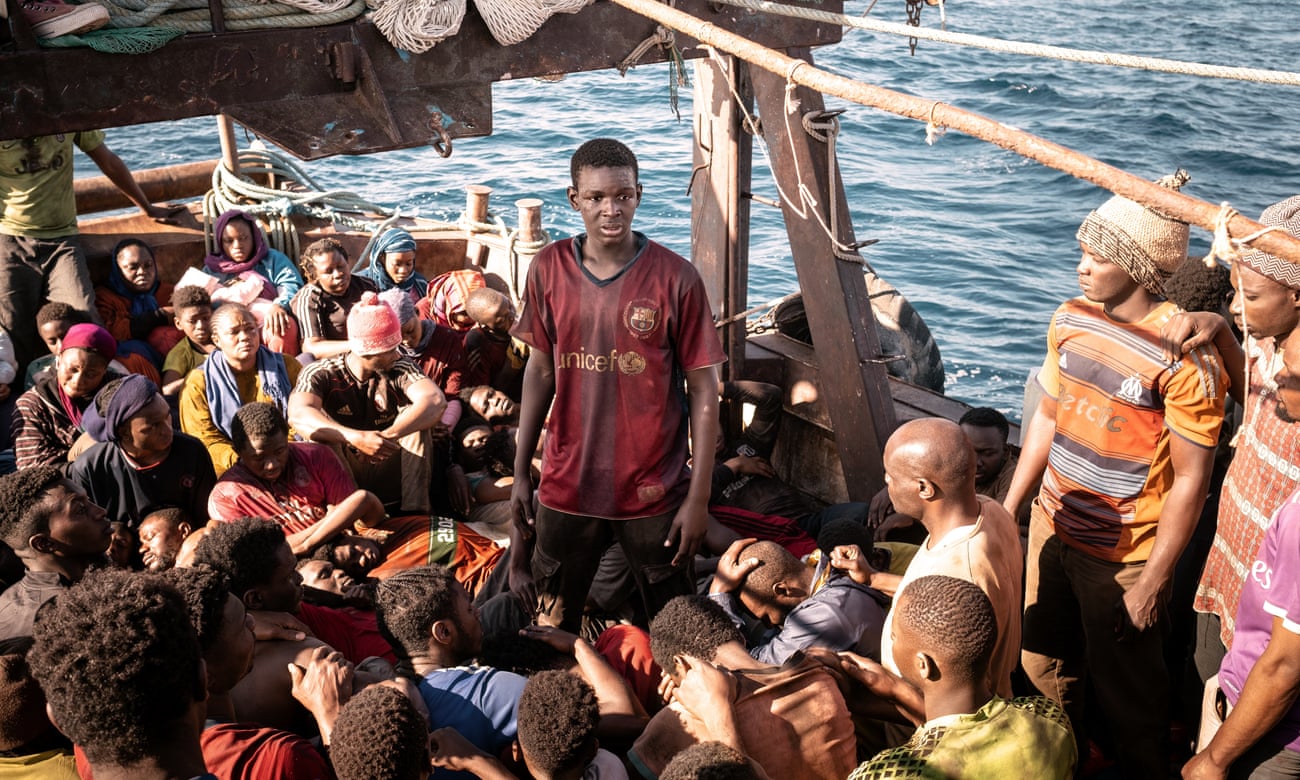The Guardian
With a disregard for people’s lives, countries from the UK to Poland are toughening up, as if in preparation for climate displacement.
It is bad enough when states break their own rules and mistreat people – but it’s when they start to change the rules that we really need to worry. Three recent stories, from three different corners of Europe, suggest that governments are crossing a new threshold of violence in terms of how they police their borders. (...)
In the UK, the Home Office has quietly tried to amend its draconian nationality and borders bill, currently at committee stage, by introducing a provision that gives Border Force staff immunity from prosecution if they fail to save lives at sea. (...)
In Poland, the government has just passed an emergency law allowing authorities to turn back refugees who cross into the country “illegally”. It is the latest development in a diplomatic standoff with Belarus. (...) Poland’s hardline response leaves many people trapped in the no man’s land between the two countries. (...)
In south-eastern Europe, an international team of investigative journalists have revealed that Croatia and Greece are using a “shadow army”, balaclava-clad plainclothes units linked to those countries’ regular security forces, to force people back from their borders. (...) Just as shocking as the claims themselves is the fact that the revelations have largely been met with a shrug of indifference by EU officials, whose funding helps prop up border defences in both countries. (...)
Together, these stories suggest that the “push-back” – the forcing away of migrating people from a country’s territory, even if it places them in harm’s way or overrides their right to asylum – is becoming an entrenched practice. Once something that would take place largely in the shadows, it is being done increasingly openly, with some governments trying to find ways to make the practice legal. (...)
This is not only a problem for today: it is a dress rehearsal for how our governments are likely to deal with the effects of the climate crisis in years to come. (...) [A] new report by the World Bank projects that 216 million people could be displaced within their own countries by water shortages, crop failure and rising sea levels by 2050. (...)
Unfortunately, many of our politicians are primed to see displacement first and foremost as a civilisational threat. (...)
Richer parts of the world have already begun to militarise their borders, a process that has accelerated in response to the refugee movements of the past decade. (...)
This, however, is a false kind of security. Restrictive and violent border control just makes the societies that wield it more authoritarian – and it doesn’t stop people moving entirely, either. What it does is force people to make more dangerous journeys, becoming even greater targets for xenophobic backlash. (...)
What’s required, instead – beyond action to reduce emissions – is a plan to help people adapt to changing living circumstances and reduce global inequality, along with migration policies that recognise the reality of people’s situations. (...)
The next few years are likely to mark a turning point in the way our governments respond to displacement. Either they work together to build a system that protects people’s lives and dignity, and that can adapt to the changing realities of the 21st century, or their borders will continue to harden, at considerable human cost. If we want to avoid the latter, then now is the time to challenge the violent logic of the push-back, before it becomes written into our laws.
Full article
> See also: Europe’s Deadly Border Policies (Human Rights Watch)

‘In Poland, the government has passed an emergency law allowing authorities to turn back refugees who cross into the country “illegally”.’Border guards are seen guarding Afghan refugees at the Polish and Belarusian border, August 2021. Photograph: Attila Husejnow/SOPA Images/Rex/Shutterstock.
Tags: #europe #borders #border_policy #fort_europe #pushbacks #frontex #libya #mediterranean #human_rights #migrantion #migrants #refugees #coast_guard #border_police #poland #belarus #greece #uk #united_kingdom #croatia #eu #european_union

